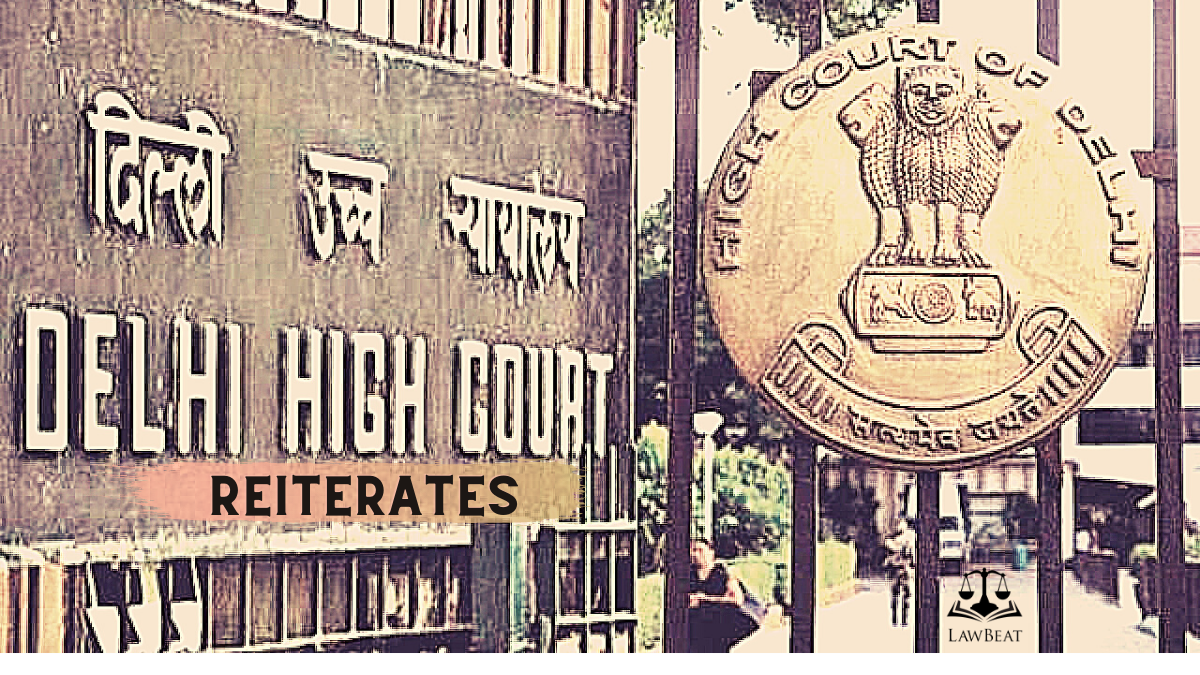High Court Under S. 362 CrPC Can Only Alter Its Judgement or Final Order To Correct A Clerical Or Arithmetic Error: Delhi High Court Reiterates

The Delhi High Court has ruled that Section 362 of the Criminal Procedure Code bars a Court from altering a judgment or final order, except to correct a clerical or arithmetical error.
The Single Judge Bench comprising Justice Subramanian Prasad while dismissing a miscellaneous application filed to recall the order that attained finality in 2015 has observed,
“A reading of Section 362 CrPC shows that it bars a Court from altering a judgment or final order except to correct a clerical or arithmetical error. Section 362 Cr.P.C itself provides the circumstances where petitions for review of orders which have attained finality can be entertained. Section 362 Cr.P.C begins with the words “Save as otherwise provided by this Code or by any other law for the time being in force?. The above expression shows that the rigor contained in Section 362 Cr.P.C can be relaxed only when it is provided by the Code itself; or permitted by any other law for the time in force or there is a clerical or arithmetical error”, the Bench noted.
In the present matter, the applicants had filed an application recalling the order dated 28.01.2015 in CRL.M.C.314/2015 and in CRL.M.C.315/2015 passed by this Court vide which the Court after after noticing the fact that the petitioners were living together, quashed the two FIRs registered u/s 498-A/406/34 & under Sections 323/328/506 of IPC. The application was filed on the ground that after the compromise the applicant has been treated with utmost cruelty and the order dated 28.01.2015 has been obtained by the petitioners by giving false assurances to the Court.
The issue that arose for consideration was whether the application was maintainable in view of the bar under Section 362 Cr.P.C.
In support of his contention that the application was maintainable, the applicant’s Counsel relied on the Supreme Court judgement in Sanjeev Kapoor v. Chandana Kapoor, (2020) 13 SCC 172, Madras High Court judgement G. Sakthi Saravanan v. S. Arun CRL.O.P. No.6231/2018, CRL.O.P. No.6232/2018 & CRL.O.P. No.6322/2018, Kerala High Court judgement in Sudheer Kumar @ Sudheer v. Manakkandi M.K. Kunhiraman & Anr., 2007 SCC OnLine Ker 147 & Apex Court judgement in S. Ramesh & Ors. v. State Rep. by Inspector of Police & Ors., Criminal Appeal No.585/2019.
The Bench to remark on the practice adopted of entertaining miscellaneous petitions in criminal cases after disposal of the main petition by the High Court while exercising jurisdiction under Section 226/227 or Section 482 Cr.P.C relied on the Supreme Court judgement in Nazma v. Javed, (2013) 1 SCC 376 in which it was observed that,
“The practice of filing miscellaneous petitions after the disposal of the main case and issuance of fresh directions in such miscellaneous petitions by the High Court are unwarranted, not referable to any statutory provision and in substance the abuse of the process of the court”
Reference was also made to the Apex Court judgement in Sooraj Devi v. Pyare Lal, (1981) 1 SCC 500, Simrikhia v. Dolley Mukherjee, (1990) 2 SCC 437 & Sunil Kumar v. State of Haryana, (2012) 5 SCC 398.
The Court observed that the case did not fall under any of the exceptions mentioned u/s 362 CrPC,1973 & remarked that,
“By an order dated 28.01.2015, this Court had quashed the FIRs on the basis of a compromise. This Court had noted in the order that if the marriage of respondent No.2 with petitioner/husband again runs into rough weather, then the respondent No.2 herein can take appropriate recourse against him. A perusal of the facts narrated above would show that the applicant has taken appropriate steps and there are proceedings between the parties. The contention of the applicant that the compromise was only a ruse to get the proceedings quashed cannot be examined by this Court at this juncture. The instant proceedings arise out of matrimonial disputes. It is the word of the applicant against the word of the petitioner. The fact that the applicant is alleging that she has been subjected to cruelty post compromise has to be proved in the proceedings initiated by her.”
Thereafter the Court dismissed the application & remarked that, “A perusal of the application would show that it is yet to be established as to whether cruelty has been committed by the petitioners against the respondent No.2. It cannot be said that the petitioner has misled the Court or suppressed facts when both the parties came before the High Court and pleaded that they have settled all their disputes and the proceedings against the petitioner be quashed. This application cannot be used to short- circuit other proceedings which are subsisting between the parties.”
Case Title: Sombir Dagar & Ors V. The State (Govt Of NCT Of Delhi) & Anr| CRL.M.C. 314/2015
Law Point/Statute Involved: Section 362 of the Code of Criminal Procedure,1973
